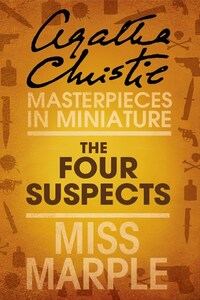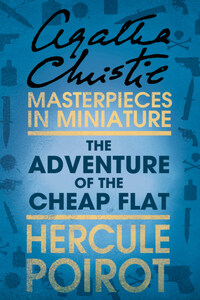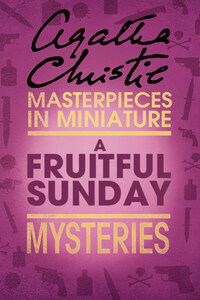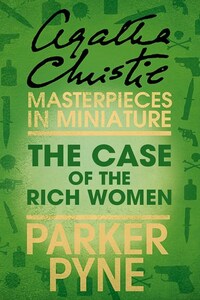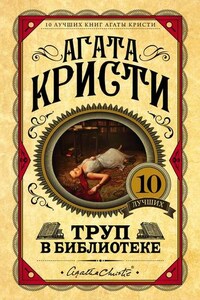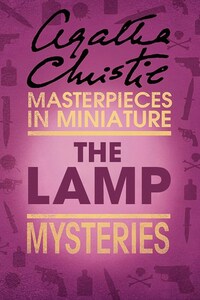Published by HarperCollinsPublishers Ltd 1 London Bridge Street London SE1 9GF www.harpercollins.co.uk
Copyright © 2008 Agatha Christie Ltd.
All rights reserved under International and Pan-American Copyright Conventions. By payment of the required fees, you have been granted the nonexclusive, nontransferable right to access and read the text of this e-book onscreen. No part of this text may be reproduced, transmitted, downloaded, decompiled, reverse engineered, or stored in or introduced into any information storage and retrieval system, in any form or by any means, whether electronic or mechanical, now known or hereinafter invented, without the express written permission of HarperCollins e-books.
HarperCollinsPublishers has made every reasonable effort to ensure that any picture content and written content in this ebook has been included or removed in accordance with the contractual and technological constraints in operation at the time of publication.
Ebook Edition © MAY 2013 ISBN: 9780007526499
Version: 2017-04-13
‘The Four Suspects’ was first published in the USA as ‘Four Suspects’ in Pictorial Review, January 1930, and then in Storyteller, April 1930.
The conversation hovered round undiscovered and unpunished crimes. Everyone in turn vouchsafed their opinion: Colonel Bantry, his plump amiable wife, Jane Helier, Dr Lloyd, and even old Miss Marple. The one person who did not speak was the one best fitted in most people’s opinion to do so. Sir Henry Clithering, ex-Commissioner of Scotland Yard, sat silent, twisting his moustache – or rather stroking it – and half smiling, as though at some inward thought that amused him.
‘Sir Henry,’ said Mrs Bantry at last. ‘If you don’t say something I shall scream. Are there a lot of crimes that go unpunished, or are there not?’
‘You’re thinking of newspaper headlines, Mrs Bantry. Scotland Yard at fault again. And a list of unsolved mysteries to follow.’
‘Which really, I suppose, form a very small percentage of the whole?’ said Dr Lloyd.
‘Yes; that is so. The hundreds of crimes that are solved and the perpetrators punished are seldom heralded and sung. But that isn’t quite the point at issue, is it? When you talk of undiscovered crimes and unsolved crimes, you are talking of two different things. In the first category come all the crimes that Scotland Yard never hears about, the crimes that no one even knows have been committed.’
‘But I suppose there aren’t very many of those?’ said Mrs Bantry.
‘Aren’t there?’
‘Sir Henry! You don’t mean there are?’
‘I should think,’ said Miss Marple thoughtfully, ‘that there must be a very large number.’
The charming old lady, with her old-world unruffled air, made her statement in a tone of the utmost placidity.
‘My dear Miss Marple,’ said Colonel Bantry.
‘Of course,’ said Miss Marple, ‘a lot of people are stupid. And stupid people get found out, whatever they do. But there are quite a number of people who aren’t stupid, and one shudders to think of what they might accomplish unless they had very strongly rooted principles.’
‘Yes,’ said Sir Henry, ‘there are a lot of people who aren’t stupid. How often does some crime come to light simply by reason of a bit of unmitigated bungling, and each time one asks oneself the question: If this hadn’t been bungled, would anyone ever have known?’
‘But that’s very serious, Clithering,’ said Colonel Bantry. ‘Very serious, indeed.’
‘Is it?’
‘What do you mean! It is! Of course it’s serious.’
‘You say crime goes unpunished; but does it? Unpunished by the law perhaps; but cause and effect works outside the law. To say that every crime brings its own punishment is by way of being a platitude, and yet in my opinion nothing can be truer.’
‘Perhaps, perhaps,’ said Colonel Bantry. ‘But that doesn’t alter the seriousness – the – er – seriousness –’ He paused, rather at a loss.
Sir Henry Clithering smiled.
‘Ninety-nine people out of a hundred are doubtless of your way of thinking,’ he said. ‘But you know, it isn’t really guilt that is important – it’s innocence. That’s the thing that nobody will realize.’
‘I don’t understand,’ said Jane Helier.
‘I do,’ said Miss Marple. ‘When Mrs Trent found half a crown missing from her bag, the person it affected most was the daily woman, Mrs Arthur. Of course the Trents thought it was her, but being kindly people and knowing she had a large family and a husband who drinks, well – they naturally didn’t want to go to extremes. But they felt differently towards her, and they didn’t leave her in charge of the house when they went away, which made a great difference to her; and other people began to get a feeling about her too. And then it suddenly came out that it was the governess. Mrs Trent saw her through a door reflected in a mirror. The purest chance – though I prefer to call it Providence. And that, I think, is what Sir Henry means. Most people would be only interested in who took the money, and it turned out to be the most unlikely person – just like in detective stories! But the real person it was life and death to was poor Mrs Arthur, who had done nothing. That’s what you mean, isn’t it, Sir Henry?’
